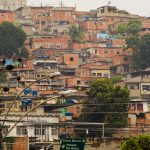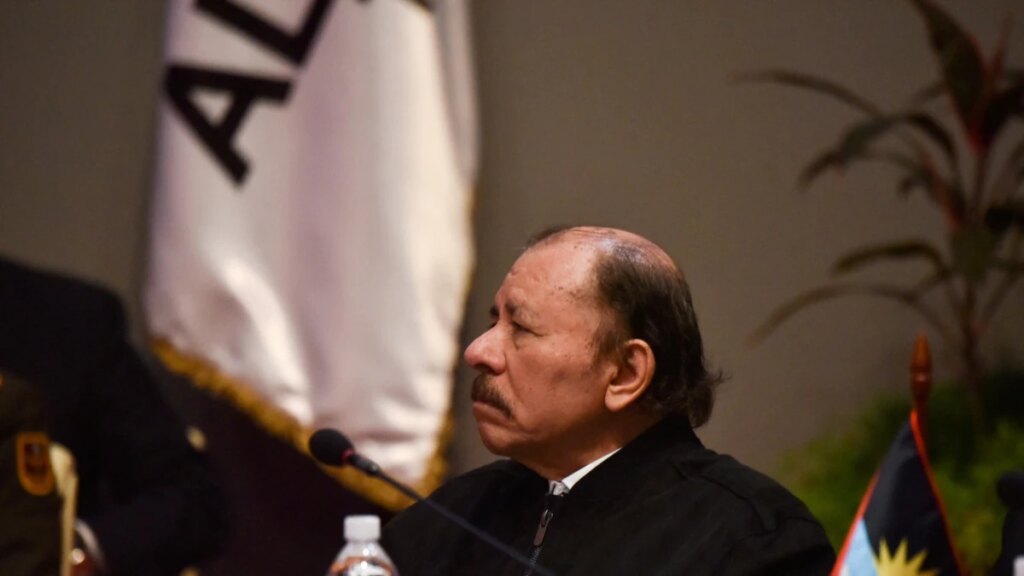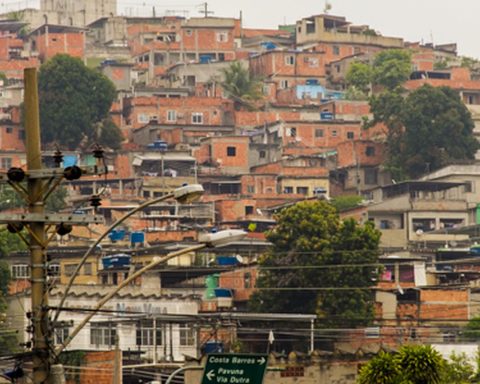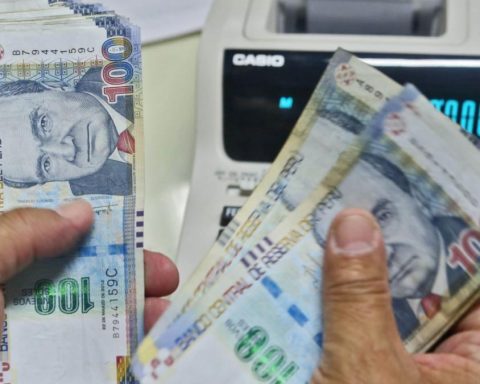A team from the International Atomic Energy Agency (IAEA) was heading to the Ukrainian nuclear power plant in Zaporizhia on Monday, while in the south of the country, troops from kyiv launched a counteroffensive to retake the city of Kherson.
Since the war broke out six months ago, Russian troops have controlled the coastal region of Kherson and its capital of the same name.
“Today there were powerful artillery attacks against enemy positions (…) in the entire territory of the occupied region of Kherson. It is the announcement of what we have been waiting for since spring: the beginning of the end of the occupation” of this area from southern Ukraine, Sergii Khlan, a local deputy and adviser to the regional governor, said on television.
For its part, the Russian Defense Ministry said it had repelled attacks in the Kherson and Mikolaiv regions and inflicted “heavy losses” on Ukrainian forces.
The city of Kherson is located about 200 kilometers southwest of the Zaporizhia nuclear plant – the largest nuclear power plant in Europe -, which has also been occupied by Russian troops since the beginning of March.
On Monday, IAEA Director General Rafael Grossi said on Twitter that an IAEA support and assistance mission was “on its way” to Zaporizhia and that the team would arrive “this week.”
The UN nuclear watchdog has been asking for months to visit the site, warning of the “very real risk of a nuclear catastrophe”.
The United Nations calls for the cessation of all military activity in the area surrounding the complex.
Ukraine initially feared that an IAEA visit would legitimize Russia’s occupation of the site, but eventually supported the idea of a mission.
– ‘Radioactive blackmail’ –
Russia and Ukraine mutually claim responsibility for the attacks around the six-reactor nuclear power plant located near the city of Energodar, on the banks of the Dnieper River.
Russian troops “continued to fire on Energodar and the Zaporizhia nuclear power plant” on Sunday, wounding 10 people, including four plant workers, the Ukrainian nuclear agency Energoatom reported on Monday, warning of the risk of a radioactive leak.
The Russian Defense Ministry on Sunday accused Ukrainian troops of bombing the area around the plant, saying they had shot down a “Ukrainian attack drone” that was approaching a nuclear fuel and radioactive waste storage area.
Kremlin spokesman Dmitri Peskov called on the international community to “pressure” the Ukrainian forces to reduce tension around the plant and “stop endangering the European continent by bombing.”
Peskov said Russia viewed the IAEA visit as “necessary” and had been “waiting for this mission for a long time,” insisting that it would guarantee its safety from “constant” risks.
For his part, Ukrainian President Volodimir Zelensky on Monday called for sanctions against Russia’s state nuclear energy agency Rosatom for occupying the plant.
“It is not normal that there are no sanctions against Rosatom for its radioactive blackmail at the Zaporizhia NPP,” he said.
“The Russians are the only terrorists in the world who have managed to turn a nuclear power plant into a battlefield,” he said.
– “The threat is total” –
Energoatom said on Monday that the Russians had “increased pressure on plant personnel to prevent them from disclosing [al OIEA] evidence of the occupants’ crimes at the plant and its use as a military base.
The industrialized countries of the G7, for their part, demanded free access for the IAEA team to “interact directly, and without interference, with the Ukrainian personnel responsible for the operation of these facilities.”
Ukraine was the scene of the world’s worst nuclear catastrophe, in 1986, when a reactor at the Chernobyl power plant in the north of the country exploded and released radiation into the atmosphere.
Energoatom warned on Monday that a leak would spread radiation to parts of southern Ukraine and southwestern regions of Russia.
The United States called on Monday for the total closure of the plant and again called for the creation of a demilitarized zone around the facility.
Separately, Russian investigators reported that a formerly pro-Zelensky former Ukrainian MP, Alexei Kovalev, who had joined the Moscow-backed local administration in Kherson, had been shot dead in his home on Sunday.
The Zaporizhia City Council said that since August 23 it had distributed iodine tablets to the inhabitants within a radius of 50 km around the plant, in accordance with the instructions of the Ministry of Health, although it indicated that they should only be used in case of a radiation alert. .
Meanwhile, the inhabitants were preparing for the worst. “You know, we lived through the Chernobyl accident, the threat was very great, but we survived, thank God. Today, the threat is total, 100%,” said Katerina, a retiree. YS









